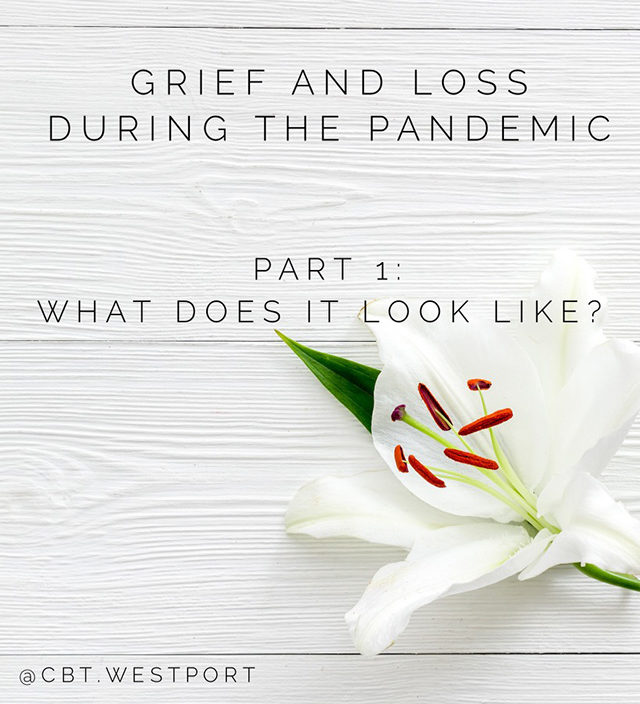The CoVid-19 pandemic has thrusted the entire world into experiencing collective loss and grief. For some, this is their first experience with these emotions and they have little to no prior losses to inform them of what to expect. In this two-part series, we cover what grief and loss can look like during the pandemic (part 1) and also how to cope (part 2).
According to the Centers for Disease Control and Prevention (CDC), many people are experiencing grief during the pandemic. Grief is typically associated with death, but it can follow any type of loss. For example, people often experience grief after significant life events that include loss such as a divorce or retirement. Some of the things that we are grieving since the start of the pandemic include:
- Financial insecurity
- Job loss or change
- Loss of housing
- Worry about family/friends
- Staying home
- Canceled or significantly modified holidays or milestone events
- Loss of a family member, friend, or loved one
Due to the staggering number of lives that have been lost due to the CoVid-19 pandemic, many people are struggling with grief caused by the unexpected death of a loved one. The pandemic has complicated the grieving process for those who mourn in several ways. For example, many people may be experiencing regret if they were unable to be with their loved when they had their final moments in the hospital due to visiting restrictions. Similarly, we are unable to engage in traditions and rituals, such as funerals, which often mark important opportunities of remembrance for those we have lost. The loss of these traditions can lead to lack of closure.
Identifying and labeling grief as an emotion can be an important step for individuals struggling with loss. It is important to remember that grief is a normal reaction to a loss. Common grief reactions include:
- Shock, disbelief, or denial
- Anxiety
- Distress
- Anger
- Periods of sadness
- Loss of sleep and loss of appetite
Many people report that grief is an isolating experience under normal circumstances. Social distancing and the quarantine process have further complicated our ability to mourn. Whether you have suffered the loss of a loved one over the past year or have endured other losses mentioned, educating yourself on the different ways that grief can present is an important first step in the bereavement process.
Be sure to check back next week to discover different ways to cope with loss during this time.

